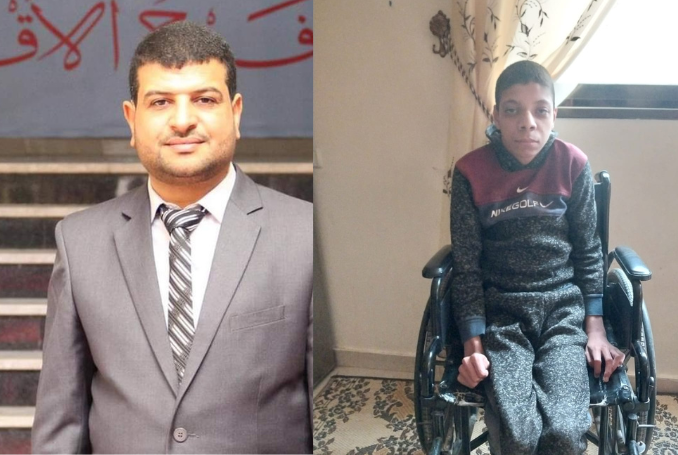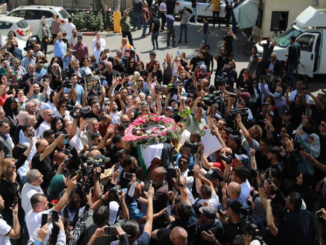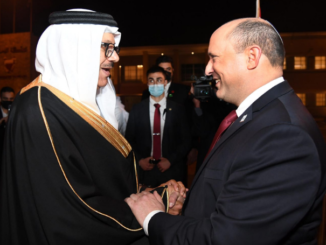
Saadi Suliman, 39, has had a hearing impairment since birth. He has faced many obstacles during his educational journey.
“It’s hard for an able-bodied person to lose support in life, but what about the one who is not understood by the people around him? The one with a hearing impairment, like me?”
Suliman, a father of five said, “When I was six years old, like all children, I was very enthusiastic about enrolling in elementary school. But I was soon expelled; I faced the unexpected shock of the school claiming that it was because I was a disabled person.”
“The learning system at that time didn’t consider disabilities in education or even specialized schools. That’s why I was prevented from taking this opportunity.”
Using a mixture of sign language, some speech, and his body to communicate, Saadi moved his hands from right to left, saying, “I eventually started going to school”.
“Unfortunately, I failed as I needed help understanding what the teachers were saying. I needed more attention, unlike my other classmates. Nevertheless, I did not give up and kept returning to school.”
Since he is a deaf person, his category of disability does not receive the attention it deserves in school or from the government. In fact, very few disabilities do.
Therefore, Saadi ended up failing high school. However, his motivation to persevere was greatly appreciated. Saadi successfully passed the lower secondary school stage. Thanks to his mother’s support, Saadi was able to continue his studies.
His mother, Hamda, says, “Saadi was only four when he lost his father, and it was a big shock.” She added, “I worked hard to help him live like any other child.”
Indeed, young Saadi returned to school. “I successfully returned to school and passed the Twajihi (High School) exam on the third try. But when I decided to enroll in the university, I was initially rejected based on their acceptance rate.”
Saadi, however, persevered and he eventually received a bachelor’s degree from the College of Arts of Al-Aqsa University.
“I exceeded all expectations by completing my academic journey successfully. And I became the first hearing-impaired student in Palestine to receive a bachelor’s degree,” Saadi said.
The suffering he experienced during high school, however, did not disappear at university.
Saadi recalled some of the ways he compensated for his disability: “I used to sit down at the first desk in the front, trying hard to understand the teacher’s words by focusing on lip reading and gestures.”
In order to process his negative thoughts and feelings, he conveyed his emotions by drawing. His art helped him all the way through school.
Eventually, Saadi earned an MA degree in education and pedagogy at the Islamic University of Gaza. He was the first graduate with a hearing disability and he started working as a lecturer for deaf students.
War on the People with Disabilities
The suffering of people with disabilities increased greatly during Israel’s assaults on the Gaza Strip.
One of those affected is 17-year-old Ahmed ِAlattar, who was born with a physical disability. He had impaired mobility in both his legs and used a wheelchair to move around.
His mother, Amani, recalled one night during the Israeli attack on Gaza in August 2014:
“At 1 a.m., It was nighttime and pitch black. I woke my children screaming that we would die in our house in Deir Al-Balah camp, in the central area of Gaza, if we didn’t run for our lives.”
“I had a call telling me we must evacuate the three-story house within only five minutes. Imagine that! The house was going to be bombed,” Amani said, communicating the intense fear that she and the family felt.
“When the Israeli soldier yelled at us that we just had five minutes or less to flee, I asked him for more time to tell my neighbors so they could get away. But he refused.”
“My mind went blank, my hands were shaking, and I didn’t know how to react at that moment. I carried my paralyzed son, Ahmed, without taking anything else, and my husband carried my two little daughters,” Amani continued.
“I was in such a hurry. I was wearing my prayer clothes and carrying my disabled son Ahmed. All I wanted was to save Ahmed. As soon as we got out, the house was flattened. At the top of my lungs, I screamed to my neighbors, who had also evacuated their homes,” she said.
After such a warning alert by the Israeli military, the few minutes before bombardment are the most precious. Every minute could save a life.
“I couldn’t use my wheelchair to flee, as I moved slowly,” Ahmed said, lying on an old-fashioned, lilac-colored sofa.
He paused.
“As soon as we escaped, the whole house was completely destroyed. Even my wheelchair was crushed! No mercy, no fairness,” he said after taking a deep breath.
Ahmed couldn’t afford a new wheelchair for a while. His suffering started again.
“I can’t move or even go anywhere without my wheelchair. So my mother moves me from one room to another all the time,” Ahmed said, adding, with optimism, “even after I get a wheelchair, the roads are inaccessible; I hope to have a scooter so that I may move easily.”
Even More Challenges in Gaza
Naji Naji, the director of the Palestinian General Union of People with Disabilities in Gaza, noted that disabled Gazans face many challenges, including the community’s lack of awareness of how to deal with disabled people.
ِAnother challenge is inaccessible buildings and roads, thus making the disabled’s mobility very difficult. And this is in addition to the larger problem of high unemployment of disabled persons in Gaza, which is over 90 percent.
“Many paralyzed people can’t afford to buy scooters or other medical necessities due to the land, sea, and air blockade of Gaza,” which has been going on since 2007, Naji added.
“The primary reason behind the increase in the unemployment rate of people with disabilities in Gaza,” he continued, “is that the Employment Committee treats people with disabilities as unable to perform duties in the workplace.”
“Additionally, people with disabilities face societal challenges related to stigma, acceptance, and ways of dealing with them. All of these factors limit their integration of people with disabilities into society.’’

– Asma Abu Amra is a freelance writer and translator from Gaza. We Are Not Numbers contributed this piece to The Palestine Chronicle.







